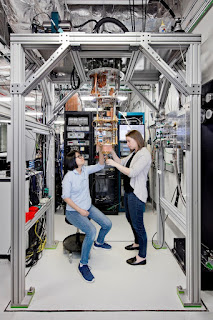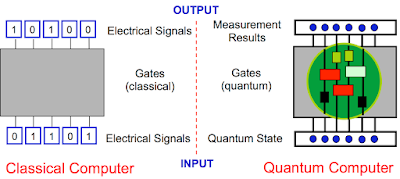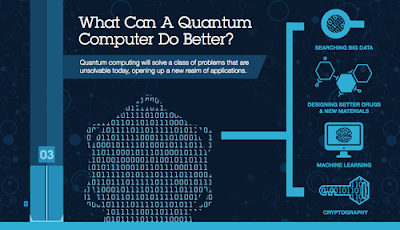Twitter Feed
Robert Duffner Interviews Chris Kemp, NASA, and Kevin Jackson, NJVC, on GovCloud
Recently, I had the pleasure of being interviewed by Mr. Robert Duffner, director of Product Management for Windows Azure, as part of his “Thought Leaders in the Cloud” series. In this interview,…
NJVC, Invertix Announce Cloud Computing Demonstration at GEOINT 2010
VIENNA, Va. — (BUSINESS WIRE) — NJVC®, one of the largest providers of information technology (IT) solutions to the U.S. Department of Defense, and Invertix Corporation, a proven technology company…
On The Frontlines: Cloud Computing in Government
Today, Trezza Media Group released the latest installment of it’s “On The Frontlines” series of government technology reports. The “On The Frontlines” Publications are dedicated to showcasing the positive progress…
GSA Awards Eleven US Federal IaaS Contracts
According to Federal News Radio, GSA awarded eleven vendor spots in the first Federal cloud infrastructure-as-a-service award. The winners were: * Apptis Inc. partnered with Amazon Web Services* AT&T* Autonomic…
NIST To Hold 2nd Cloud Computing Forum & Workshop
On November 4-5, 2010, the National Institute of Standards and Technology (NIST) will hold their second Cloud Computing Forum & Workshop. During this event, NIST will report on the status of federal…
“On The Frontlines” Interview
Look out for “On The Frontlines: The Government Cloud” scheduled for release in November 2010! Trezza Media Group provides high-quality thought leadership media and marketing services to help companies connect…
Yongsan Army Garrison Does Cloud Computing!!
First Signal is ready for the cloud ! Even with the time constraints of the Chusok holiday and the onslaught of a 100-year flood, the class soldiered on with five…
Army Cloud Computing in Korea!
After a long uneventful flight, I’ve arrived at Yongsan Army Garrison in Soeul Korea. After enjoying the economy accomodation on a Boeing 777 for over 14 hours, my room and…
The Taiwan GovCloud
Last week, Henry Kenyon of Federal Computer Week reported that the Taiwanese government is planning to spend $744M to develop cloud computing technology. Premier Den-yih Wu sees this as a…
Geospatial Cloud Computing In Support Of National Policy
A few weeks ago I once again had the pleasure of participating in a private discussion on cloud computing with Mr. Vivek Kundra. What struck me in this most recent meeting was his views…
- The release of a new API (Application Program Interface) for the IBM Quantum Experience that enables developers and programmers to begin building interfaces between its existing five quantum bit (qubit) cloud-based quantum computer and classical computers, without needing a deep background in quantum physics.
- The release of an upgraded simulator on the IBM Quantum Experience that can model circuits with up to 20 qubits. In the first half of 2017, IBM plans to release a full SDK (Software Development Kit) on the IBM Quantum Experience for users to build simple quantum applications and software programs.
The IBM Quantum Experience enables anyone to connect to IBM’s quantum processor via the IBM Cloud, to run algorithms and experiments, work with the individual quantum bits, and explore tutorials and simulations around what might be possible with quantum computing. Since its launch less than a year ago, about 40,000 users have run over 275,000 experiments on the IBM Quantum Experience. It has become an enablement tool for scientists in over 100 countries and, to date, 15 third-party research papers have been posted to arXiv with five published in leading journals based on experiments run on the Quantum Experience.
 The broad availability of quantum computing capability could prove to be a significant blow to current data encryption practices. In 2015 the US National Security Agency actually advised US agencies and businesses to prepare for a time when the cryptography protecting virtually all e-mail, medical and financial records, and online transactions would be rendered obsolete by quantum computing. The US National Institute for Standards and Technology (NIST) is also running a competition to spur work on post-quantum algorithms.
The broad availability of quantum computing capability could prove to be a significant blow to current data encryption practices. In 2015 the US National Security Agency actually advised US agencies and businesses to prepare for a time when the cryptography protecting virtually all e-mail, medical and financial records, and online transactions would be rendered obsolete by quantum computing. The US National Institute for Standards and Technology (NIST) is also running a competition to spur work on post-quantum algorithms. - Drug and Materials Discovery: Untangling the complexity of molecular and chemical interactions leading to the discovery of new medicines and materials;
- Supply Chain & Logistics: Finding the optimal path across global systems of systems for ultra-efficient logistics and supply chains, such as optimizing fleet operations for deliveries during the holiday season;
- Financial Services: Finding new ways to model financial data and isolating key global risk factors to make better investments;
- Artificial Intelligence: Making facets of artificial intelligence such as machine learning much more powerful when data sets can be too big such as searching images or video; or
- Cloud Security: Making cloud computing more secure by using the laws of quantum physics to enhance private data safety.
This content is being syndicated through multiple channels. The opinions expressed are solely those of the author and do not represent the views of GovCloud Network, GovCloud Network Partners or any other corporation or organization.
( Thank you. If you enjoyed this article, get free updates by email or RSS – © Copyright Kevin L. Jackson 2017)
Cloud Computing
- CPUcoin Expands CPU/GPU Power Sharing with Cudo Ventures Enterprise Network Partnership
- CPUcoin Expands CPU/GPU Power Sharing with Cudo Ventures Enterprise Network Partnership
- Route1 Announces Q2 2019 Financial Results
- CPUcoin Expands CPU/GPU Power Sharing with Cudo Ventures Enterprise Network Partnership
- ChannelAdvisor to Present at the D.A. Davidson 18th Annual Technology Conference
Cybersecurity
- Route1 Announces Q2 2019 Financial Results
- FIRST US BANCSHARES, INC. DECLARES CASH DIVIDEND
- Business Continuity Management Planning Solution Market is Expected to Grow ~ US$ 1.6 Bn by the end of 2029 - PMR
- Atos delivers Quantum-Learning-as-a-Service to Xofia to enable artificial intelligence solutions
- New Ares IoT Botnet discovered on Android OS based Set-Top Boxes




